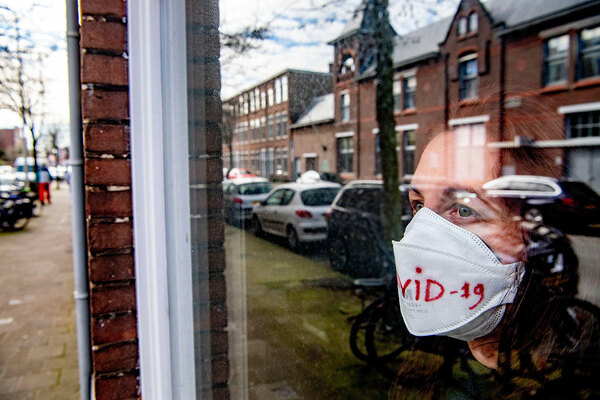You are viewing 1 of your 1 free articles
Five-week wait for Universal Credit must be scrapped during coronavirus crisis, sector figures demand
Sector figures have called on the government to scrap the five-week wait for Universal Credit payments as part of its raft of new welfare measures brought in to assist those who face financial hardship due to coronavirus.
Housing bodies have told Inside Housing that following on from the changes announced by chancellor Rishi Sunak last Friday, which included encouraging people who are facing financial difficulties to claim Universal Credit, the government must now end the five-week wait.
Sam Lister, policy and practice officer at the Chartered Institute of Housing, said: “We’ve said for a long time that the five-week wait for Universal Credit creates hardship for some of our least well-off fellow citizens and should be reviewed.
“It’s a shame the chancellor missed this opportunity to correct this failing in the Universal Credit system, particularly as it will affect working people who face a big income shock if they lose their jobs due to coronavirus.”
On Friday, Mr Sunak announced a package of temporary measures to help those who face financial difficulties due to coronavirus, including a reversal of the freeze on Local Housing Allowance and an increase in Universal Credit by £1,000 per year.
The minimum income floor for Universal Credit was also suspended for anyone impacted by coronavirus, meaning it can be claimed by any self-employed people out of work at a rate equivalent to statutory sick pay.
However, all new Universal Credit claimants will still have to wait five weeks to receive their first payment or apply for an advance, which must be repaid at a later date.
Hannah Gousy, head of policy and campaigns at Crisis, said: “We already know from our perspective at Crisis when people are making that application and they’re experiencing homelessness that there’s absolutely no way that they would have five weeks worth of savings in order to cover that waiting period for Universal Credit.”
She added: “We would anticipate that in this situation there would be a much wider group of people who are experiencing financial hardship who would also be pushed to the brink of homelessness and would need that five-week wait to be scrapped.”
Crisis is calling on the government to offer non-repayable loans to new Universal Credit claimants in order to cover that initial five-week period.
London Councils, which represents all local authorities in the capital, is also calling on the government to introduce non-repayable grants “that put money in the pocket of those who need it from the very start of their claim”.
A representative for the organisation said: “Londoners who lose their jobs as a result of the COVID-19 outbreak should be able to access financial support as soon as possible.
“While the government’s changes to Universal Credit are welcome they don’t address the central problem that claimants have to wait five weeks until their first payment.
“The London experience of Universal Credit has been that the five-week wait places both claimants and local authorities in a position of financial insecurity. Although advance payments are available these have to be repaid and can start a cycle of debt that can be difficult to break.”
Brendan Sarsfield, chief executive of housing association Peabody, said: “We welcome the steps government has taken so far to protect businesses and jobs, and hope there will be more support for self-employed people soon.
“We’re also asking the chancellor to go further on Universal Credit by either reducing the five-week wait or turning advance loans into grants. This would help the many frightened people who have lost their income and livelihoods access support quickly without being pushed into debt.”
It comes the day after prime minister Boris Johnson announced stricter lockdown measures to prevent the spread of coronavirus, including the closure of all non-essential retail.
A Department for Work and Pensions spokesperson said: “Nobody has to wait five weeks to receive money with Universal Credit as urgent payments are available.
“The government is committed to strengthening our welfare safety net and supporting those whose lives have been disrupted at this unprecedented time.”
Updated on 25/03/2020 at 12:21: This article was updated to make it clear that repayable loans are currently available to new Universal Credit claimants during the first five weeks of their claim.













